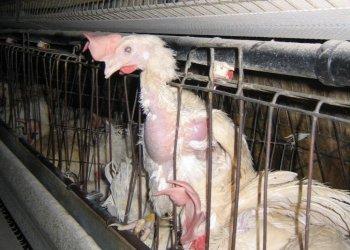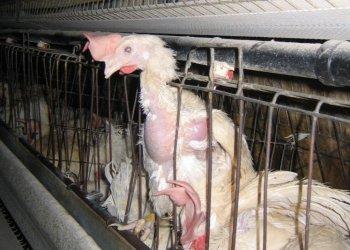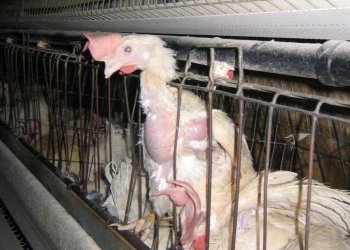VANCOUVER—The Vancouver Humane Society wants Canadians to make 2010 a better year for chickens by purchasing organic, free range, or free run eggs—or even abstaining from eggs altogether.
“The way we change these things is by the choices that we all make,” says VHS director Leanne McConnachie.
A recent poll commissioned by the society showed that 63 percent of Canadians indicated they would support a legislative ban on battery cages in their province, an increase from a similar poll in 2007.
Battery cages are small wire cages that hold an average of five birds per cage in buildings devoid of sunlight. In such a confined space, the birds can neither stand properly nor move freely, and are unable to engage in their natural behaviours of nesting, wing-flapping, scratching, and dust bathing.
In these crowded conditions, egg-laying itself can become a traumatic experience for the hens, which claw and peck at each other or at the cage in an effort to secure non-existent nesting space. In order to deal with this problem, battery hens are de-beaked using hot knives or lasers.
The survey also found that 72 percent of Canadians are willing to pay more for farm animal products that are certified humane, while 54 percent are willing to pay a higher price for cage-free eggs.
However, a full 81 percent believe that farmers take good care of their animals, and 62 percent think that animals are treated humanely in the process of producing food—a misperception that could slow or even prevent change, says McConnachie.
“People still believe that the majority of farming that occurs in Canada is still using the traditional style, that we are using traditional techniques—that factory farming is something that only happens in the U.S. and is used only a limited amount in Canada,” she says.







